Research
Our lab develops computational imaging methods, which jointly design optics, devices, signal processing and algorithms, and enable novel capabilities that each one alone cannot. Our research is inherently interdisciplinary, combining expertise in optical engineering, physics and computation. We work on imaging technologies for biomedical, neuroscience, and semiconductor-related applications.
Deep Learning for Computational Imaging
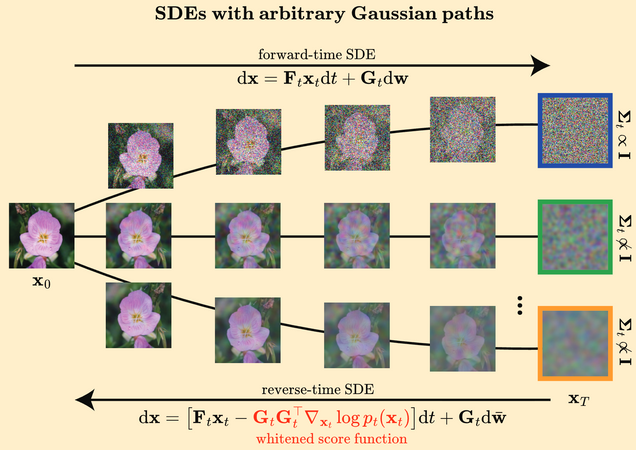 Diffusion models
Diffusion models
We work on diffusion models for solving inverse problems.
-
-
-
-
-
-
-
-
- Alido, et al, Whitened Score Diffusion: A Structured Prior for Imaging Inverse Problems, NeurIPS, 2025.
-
-
-
-
-
-
-
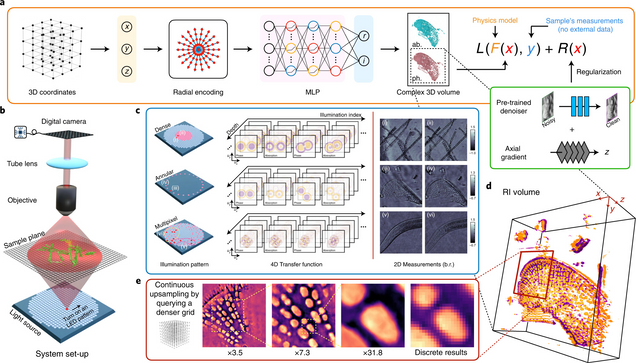
Implicit neural representation
We develop computational imaging techniques that leverage implicit neural representations.
-
-
-
-
-
-
-
-
- Wang, et al, NeuPh: scalable and generalizable neural phase retrieval with local conditional neural fields, Advanced Photonics Nexus 3, 056005 (2024).
- Liu, et al, Recovery of Continuous 3D Refractive Index Maps from Discrete Intensity-Only Measurements using Neural Fields, Nature Machine Intelligence 4, 781–791 (2022).
-
-
-
-
-
-
-
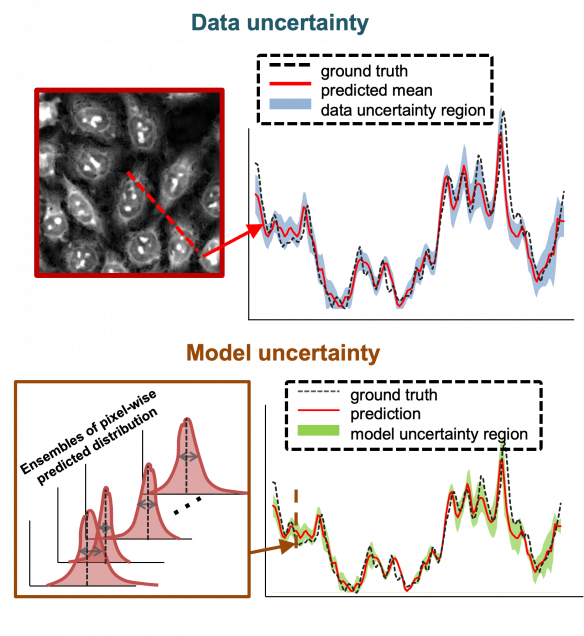
Reliable deep learning with Uncertainty Quantification
We develop uncertainty quantification techniques to provide more reliable deep learning predictions for quantitative bio-imaging.
-
-
-
-
-
-
-
-
- Xue, et al, Reliable deep learning-based phase imaging with uncertainty quantification, Optica 6, 618-629 (2019).
- Liu,, et al. Deep spectral learning for label-free optical imaging oximetry with uncertainty quantification. Light: Science & Applications 8.1 (2019): 102.
-
-
-
-
-
-
-
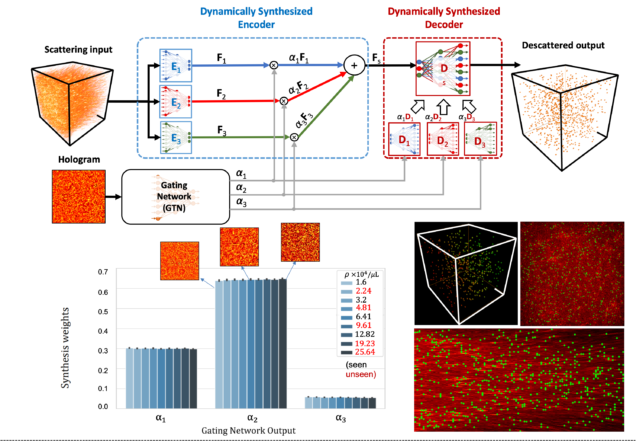
Adaptive deep learning
We work on adaptive deep learning framework to achieve robust imaging across a variety of conditions.
-
-
-
-
-
-
-
-
- Tahir, et al, Adaptive 3D descattering with a dynamic synthesis network, Light: Science & Applications 11, 42, 2022.
-
-
-
-
-
-
-
Computational Microscopy
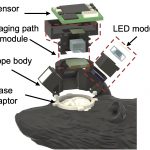
Computational Miniature Mesoscope (CM2)
We develop “wearable” computational fluorescence microscope that achieves cm-scale FOV and µm-scale resolution with single-shot 3D imaging capability. A complete publication list is here.
-
-
-
-
-
-
-
-
- Xue, et al, Single-Shot 3D Widefield Fluorescence Imaging with a Computational Miniature Mesoscope, Science Advances 21 2020: EABB7508
- Xue, et al, Deep-learning-augmented computational miniature mesoscope, Optica 9, 1009-1021 (2022).
- Yang, et al, Wide-field, high-resolution reconstruction in computational multi-aperture miniscope using a Fourier neural network, Optica 11, 860-871 (2024).
-
-
-
-
-
-
-
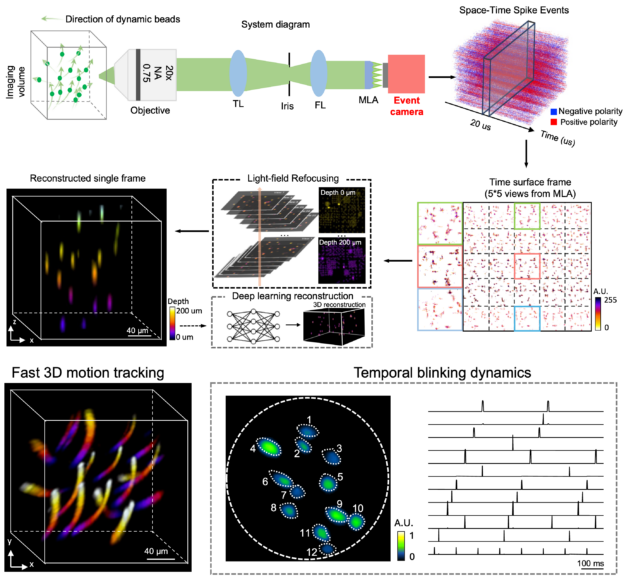
Event-driven dynamic microscopy
We develop computational “event-driven” microscopy techniques to address challenges in dynamic imaging.
-
-
-
-
-
-
-
-
- Guo, Ruipeng, et al. EventLFM: Event Camera integrated Fourier Light Field Microscopy for Ultrafast 3D imaging. Light: Science & Applications 2024.
-
-
-
-
-
-
-
Computational Semi-conductor Metrology
We developed computational imaging techniques for semiconductor metrology and inspection applications.
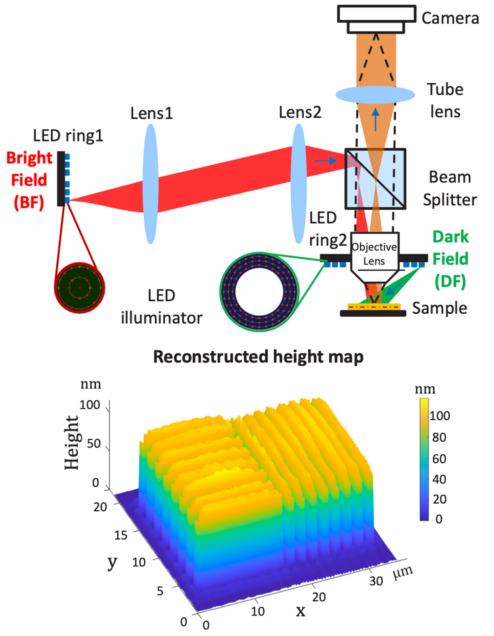
Fourier Ptychograhpic Topography
We develop novel topography techniques based on the reflection-mode Fourier ptychographic microscopy, termed Fourier ptychograhpic topography (FPT). FPT provides both a wide FOV and high resolution, and achieves nanoscale height reconstruction accuracy.
-
-
-
-
-
-
-
-
- H. Wang, et. al. Fourier ptychographic topography, Optics Express 31, 11007-11018 (2023).
-
-
-
-
-
-
-
Reflection-mode Diffraction Tomography
We develop a reflection-mode diffraction tomography technique that enables the simultaneous recovery of forward- and backward-scattering information for high-resolution 3D refractive index reconstruction.
-
-
-
-
-
-
-
-
- T. Li, et. al. Reflection-mode diffraction tomography of multiple-scattering samples on a reflective substrate from intensity images, Optica, 2025.
-
-
-
-
-
-
-
Computational Phase Imaging
We work in the following major directions. A complete publication list is here.
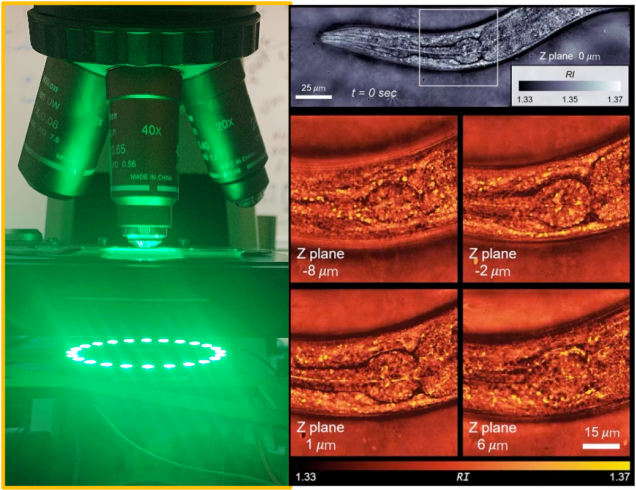
Intensity Diffraction Tomography
We are developing high-speed computational 3D phase microscopy techniques by leveraging simple optical setups and advanced algorithms.
-
-
-
-
-
-
-
-
- Li, et al, High-speed in vitro intensity diffraction tomography, Advanced Photonics, 1(6), 066004 (2019).
-
-
-
-
-
-
-
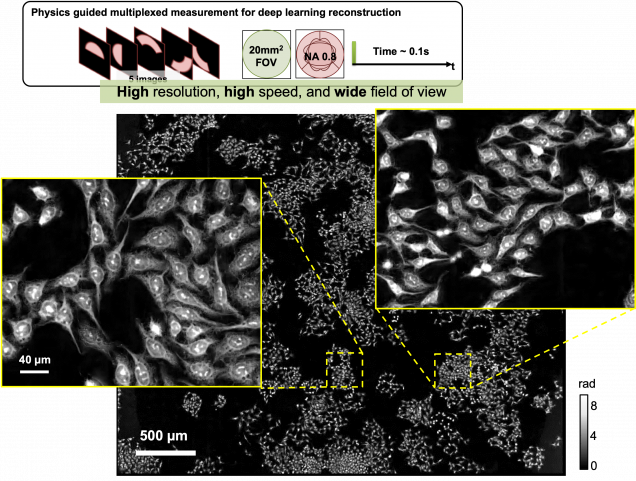
Fourier Ptychography
We are working computational microscopy techniques to achieve gigapixel phase imaging.
-
-
-
-
-
-
-
-
- Tian, et al, Computational illumination for high-speed in vitro Fourier ptychographic microscopy, Optica 2(10), 904-911 (2015).
-
-
-
-
-
-
-
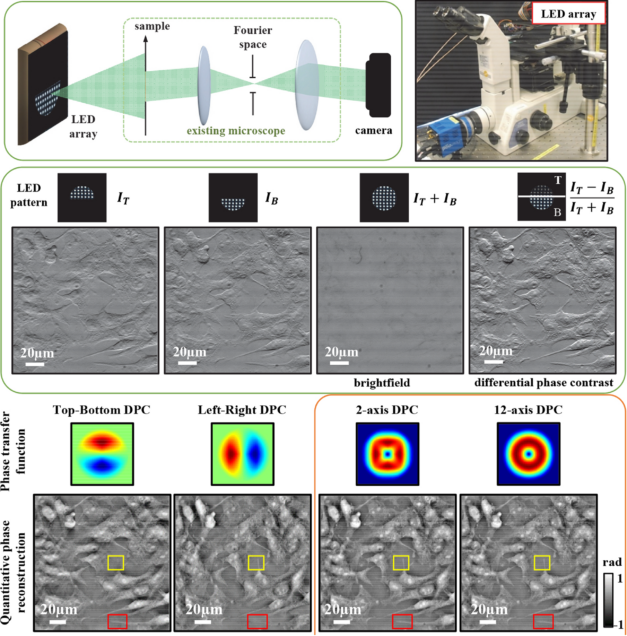
Differential phase contrast microscopy
We are working computational microscopy techniques based on the principle of transfer function analysis.
-
-
-
-
-
-
-
-
- Tian and Waller. Quantitative differential phase contrast imaging in an LED array microscope. Optics Express 23.9 (2015): 11394-11403.
-
-
-
-
-
-
-
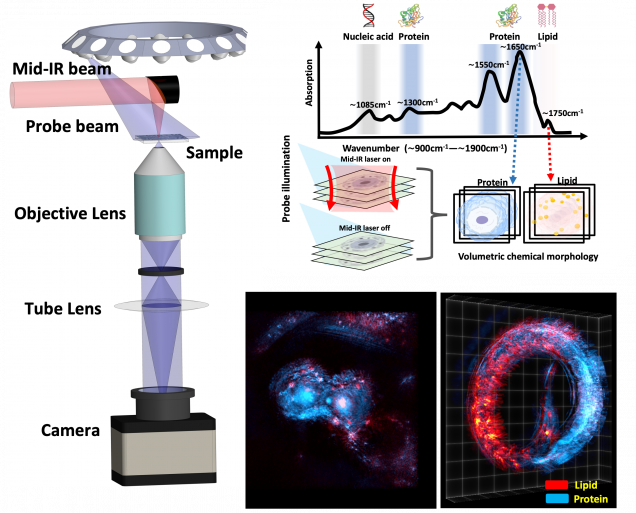
Computational label-free chemical microscopy
We are working computational label-free microscopy techniques with chemically specific information.
-
-
-
-
-
-
-
-
- Zhao, et al, Bond-Selective Intensity Diffraction Tomography, Nat Commun 13, 7767 (2022).
- Zhao, et al, Bond-Selective Intensity Diffraction Tomography, Nat Commun 13, 7767 (2022).
-
-
-
-
-
-
-
Deep learning for Quantitative Bio-imaging
We work in the following major directions. A complete publication list is here.
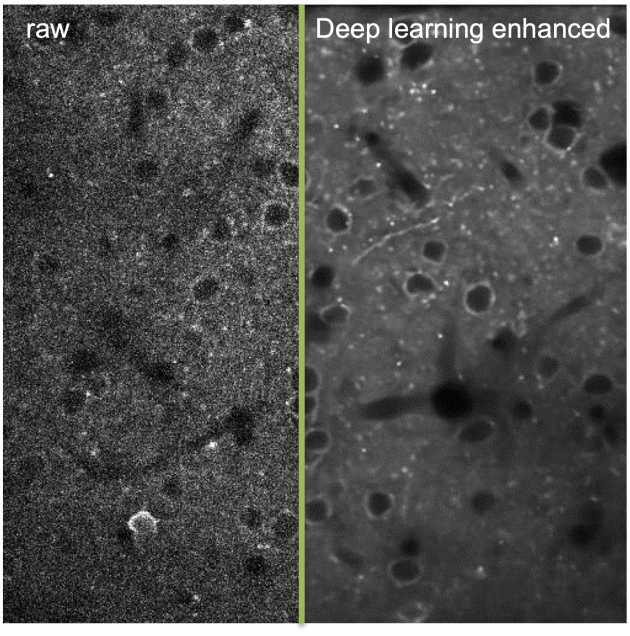
Deep learning for in-vivo neural signal modeling & extraction
We develop various deep learning techniques to enhance and analyze in-vivo neural signals. A complete publication list is here.
-
-
-
-
-
-
-
-
- Chang, et al, DeepVID v2: self-supervised denoising with decoupled spatiotemporal enhancement for low-photon voltage imaging, Neurophotonics, 2024.
- Platisa, et al, High-speed low-light in vivo two-photon voltage imaging of large neuronal populations, Nature Methods 20, pages1095–1103 (2023)
-
-
-
-
-
-
-
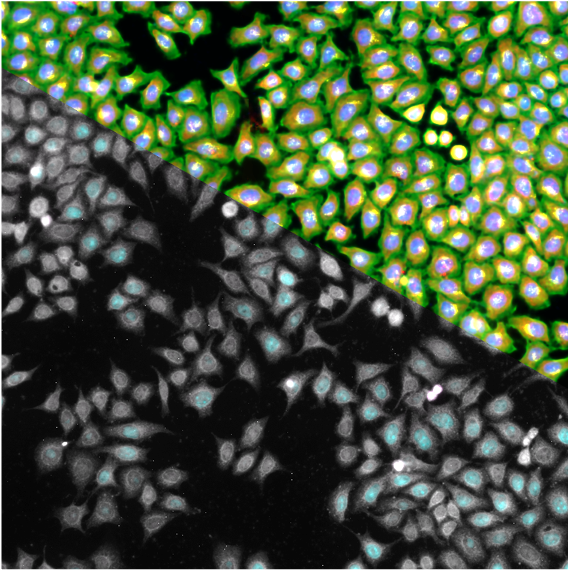
Cross-modality information transfer
We work on deep learning technique that allows knowledge transfer across different bio-imaging modalities.
-
-
-
-
-
-
-
-
- Cheng, et al, Single-cell cytometry via multiplexed fluorescence prediction by label-free reflectance microscopy, Science Advances 15 Jan 2021: Vol. 7, no. 3, eabe0431.
-
-
-
-
-
-
-
Computational Imaging in Complex Media
We work in the following major directions. A complete publication list is here.
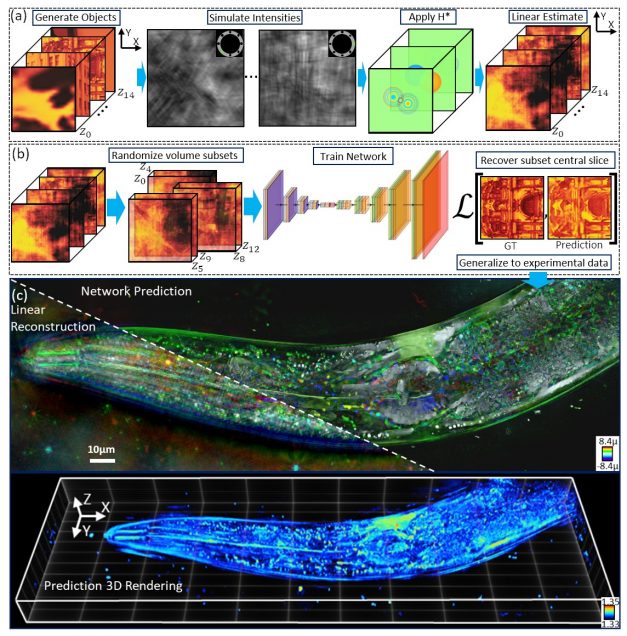
Multiple-scattering modeling & Physics-based deep learning
We develop efficient and accurate multiple-scattering models to enable large-scale simulation of multiple-scattering in biological samples. These multiple scattering models form the foundation to develop physics-based deep learning models to achieve accurate 3D phase reconstructions. A complete publication list is here.
-
-
-
-
-
-
-
-
- Matlock, Zhu, Tian, Multiple-scattering simulator-trained neural network for intensity diffraction tomography, Optics Express 31, 4094-4107 (2023).
-
-
-
-
-
-
-
Computational imaging with non-conventional optics
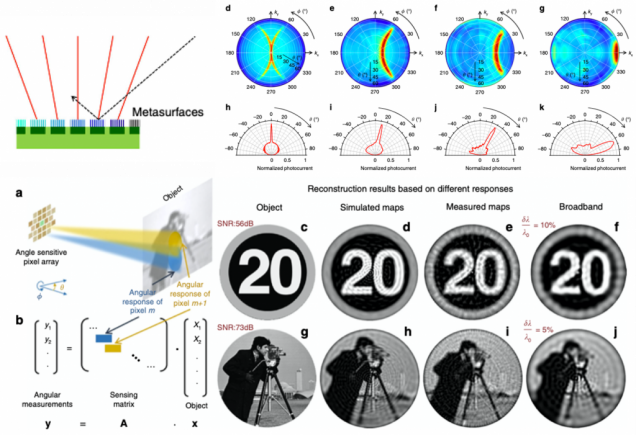 Computational Imaging with Metasurface Photodetectors
Computational Imaging with Metasurface Photodetectors
We develop computational imaging techniques for metasurface photodetectors to achieve non-conventional imaging capabilities. A complete publication list is here.
-
-
-
-
-
-
-
-
- Kogos, et al, Plasmonic ommatidia for lensless compound-eye vision, Nat. Communications 11: 1637 (2020).
-
-
-
-
-
-
-